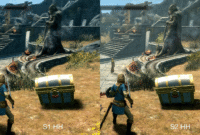Silent Hill f Producer Sets the Record Straight: Why Defining It as “Action Horror” Matters More Than Ever
Among the growing buzz surrounding Silent Hill f, fans are asking an important question: what kind of horror experience truly awaits them? Recently, as 2025 approaches, producer Motoi Okamoto decisively emphasized that Silent Hill f is an action horror game, unmistakably distancing it from popular Soulslike comparisons. That clarification, while initially seeming subtle, is strikingly important for understanding not only this new chapter but the evolving identity of a beloved franchise. In today’s industry—caught between reverence for classic gameplay and the urge for reinvention—grasping exactly how Silent Hill f positions itself is, quite frankly, essential.

Not a Soulslike—and That’s Exceptionally Important
Over the past few weeks, discussions about Silent Hill f’s genre have notably intensified. According to Okamoto’s recent interview with Eurogamer, the studio views the game through a specific lens: “It’s an action horror game, and equating it with a Soulslike is simply inaccurate.” His stance is exceptionally clear—this is about protecting the soul of Silent Hill while acknowledging players’ evolving expectations.
Labeling any dark, atmospheric game with melee combat as a Soulslike has, in recent years, become almost a reflex. Yet, by insisting on the action horror label, Okamoto signals a conscious departure from that trend. He isn’t just defining gameplay; he’s actively safeguarding what makes Silent Hill unforgettable: unnerving narrative layers, thickly woven atmosphere, and psychological tension—elements that are remarkably effective at generating fear without leaning entirely on punishing combat mechanics.
No Need for Lightning-Fast Reflexes: The Real Terror Comes from Within
Where Soulslike titles demand quick reflexes and memorization of boss patterns, Silent Hill f instead trades on a different kind of intensity—one that lingers long after the controller’s been set down. Okamoto’s comments, notably, highlight a core philosophy: “The defining horror of Silent Hill isn’t about endless defeat—it’s about emotions that disturb and linger.” That direction, in the context of today’s action-heavy market, is highly refreshing.
Rather than prioritizing relentlessly difficult encounters, the game seems poised to immerse players in story-driven tension and creeping dread. It’s an approach reminiscent of the early franchise roots, where psychological horror took center stage. Having seen similar successes in the past—think of how Alan Wake II’s suspense or Signalis’ existential dread struck a chord—this focus on mind over muscle feels particularly innovative, and is likely to be warmly received.
Turning Fog into Floral Fears: Silent Hill f Carves Its Unique Niche
Drawing inspiration from 1960s Japan and steeped in folktale terror, Silent Hill f takes a bold aesthetic leap. It introduces grotesque, plant-infested horrors, and channels environmental storytelling in ways that are both visually captivating and symbolically deep. The design choices here—collaborating with murder-mystery luminary Ryūkishi07—have the potential to create a psychological nightmare that is, quite frankly, unlike anything Soulsborne studios have ever attempted.
The elegant intertwining of trauma, identity, and societal decay is strikingly reminiscent of classic Japanese horror, yet feels refreshingly modern. For longtime fans who cherish the series’ psychological roots, this creative direction offers a sense of anticipation and nostalgia that feels almost palpable.
The Trouble with Soulslike Comparisons: Navigating Industry Expectations
Despite repeated clarifications, online forums are filled with fans keen to make Soulslike parallels. This is, perhaps, an inevitable byproduct of the genre’s enduring popularity and its reputation for “authentic” difficulty. In today’s market, where games boasting Soulsborne elements often garner attention and acclaim, such comparisons aren’t surprising. However, Okamoto’s deliberate positioning suggests a notably improved strategy for Konami: don’t chase trends—set them.
By reinforcing Silent Hill’s legacy as action horror—anchored in atmosphere and storytelling—the studio is, in effect, doubling down on its strengths. In an industry that sometimes prizes imitation over originality, that choice feels both courageous and notably progressive.
The Bigger Picture: How Silent Hill f Could Shape Tomorrow’s Horror Games
Okamoto’s perspective isn’t just anti-label rhetoric. It’s a purposeful move to assert Silent Hill f as a future standard-bearer for the genre. In the coming years, ensuring that horror games remain diverse—in concept, pacing, and style—is crucial. We’ve already seen how titles like Signalis and Alan Wake II can successfully blend nostalgia and innovation. With Silent Hill f, that trend looks set to continue, perhaps even accelerate.
Given Okamoto’s commitment to intense, thoughtfully paced set-pieces and layered storytelling, it’s increasingly likely that Silent Hill f will not only satisfy franchise veterans but also convert a new generation of fans. As psychological horror enjoys a resurgence, this game may very well sit at the epicenter of that movement.
| Aspect | Silent Hill f | Soulslike Games |
|---|---|---|
| Genre Identity | Action Horror / Psychological | Action RPG / Challenging Combat |
| Main Priority | Atmosphere, Storytelling, Tension | Skill-based Combat, Progression |
| Combat Approach | Scripted, Cinematic, Emotion-driven | Timing-based, Open Movesets |
| Player Experience | Emotional Horror, Internal Struggle | Challenge, Mastery, Exploration |
| Narrative Focus | Exceptionally Deep Themes | Abundant Lore, Variably Abstract |
Classifying a game is more than a marketing move; it guides expectations, sparks curiosity, and—in the case of Silent Hill f—protects its unique, emotionally-driven lineage. Mislabeling it as a Soulslike would, quite simply, do a disservice to the thoughtful, genre-defining vision Konami and Okamoto are bringing to life. Here, combat acts as a means to explore, not just to overcome.
As the 2025 launch draws ever closer, one thing is becoming increasingly apparent: Silent Hill f isn’t comforted by following trends—it’s designed to forge new ones. Okamoto’s unflinching commitment to the game’s true identity, in a landscape teeming with nostalgia and sameness, feels both timely and necessary. Perhaps, in rising from the fog, Silent Hill will again become the beacon that horror gaming needs.
Dive deeper into Motoi Okamoto’s thoughts in the full interview at Eurogamer.net.



